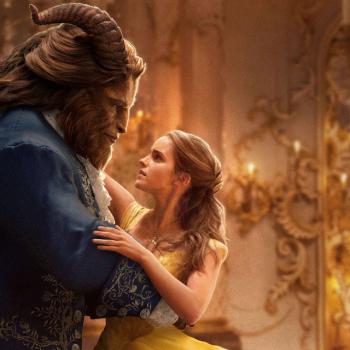The Obelisk of Antinous mentions "love" only in the context of what Antinous's worshippers have for him; it does mention Antinous interceding on behalf of Hadrian for his welfare, but this prayer is likewise echoed and expanded upon for Hadrian's wife, the empress Sabina. Antinous, therefore, could be taken in this context as officially sanctioning the marriage of Hadrian and Sabina. Not realizing this, and not freely admitting it, in favor of some notion of gay triumphalist ideology simply isn't very truthful nor useful, in my opinion.
What do you think are the biggest challenges facing contemporary Pagans?
I think one of the main challenges that is still as difficult now as it was a few decades ago is the one of visibility and of non-Pagans taking us seriously. While the growth of the modern atheist critique of mainstream dominant religions is a positive and useful thing in many ways, I can't say I'm at all pleased with their opening straw-man argument (utilized by Sam Harris, Richard Dawkins, and others) of "everyone is an atheist in regards to Zeus and Poseidon now; why not in relation to the Christian God?" The idea that Paganism can be written off as silly and superstitious pretty much just accepts the monotheistic religions' arguments about the same, and most of the reasoning of atheists against "religion" is only against the presuppositions of the monotheistic conception of theology, and are nowhere near as effective in countering polytheist or animist theologies.
The idea of the "evolutionary view of religion," the development from primitive animism to more organized polytheism, through more rational philosophy to monotheism, and then to deism and finally atheism, is accepted by many Christians—leaving off the atheism end-point, of course! But, I think the entirety of it has to be questioned. It is good and even standard religious studies methodology to question this, and to instead accept each one in terms of an equally valid and worthy "phenomenology of religion." Many Christians aren't willing to do that, and will continue to think of us as backwoods, somewhat stupid fellow humans (and only grudgingly on the "human" part)—indeed, that is what "Pagan" signifies to them. They are not willing to accord us a respectable place amongst modern religions, even in some interfaith contexts with which I've been involved, because to them many of us are apostates rather than followers of another religion; anyone "born" a Christian who converted to Paganism later in life, even if in childhood, is an apostate. Because they still believe theirs is the only "Truth," any other choice to be made in spiritual terms is heresy (quite literally) and apostasy. So, not only having a better standing in interfaith dialogue, but also presenting further alternatives religiously (rather than "being religious" understood as "being Christian" or nothing/atheists), are also challenges that we face.
I think that the Pagan engagement in interfaith dialogue has to be a little more honest and realistic in the future. One's choice to be pagan is just as valid as one's choice to be anything else, and what the dominant religions' theologies say about us that is disrespectful should not be countered so much as ignored, as we instead define ourselves and stand on our own two feet. Enough talking about how the Wiccan Horned God is not the Devil; to many Christians, who uphold Psalm 96:5 (all the gods of the Gentiles are false/devils/etc.), no matter how much we try and communicate that, they'll still think it, and will still disrespect us behind our backs after such interfaith events are finished.
Some of their most important and respected church fathers have said horrible things about one of my own most beloved gods, and they are not likely to reverse their opinions on the idea, nor do they need to; but they do need to respect me and my practices and those practices' own integrity by law in the U.S. and in the wider world. So, let's define ourselves by our own terms, rather than trying to correct other people on their own deficient theologies. If they wish to accept us as respectable human partners in dialogue, all the better; if they do not, let it not stop us from practicing and supporting our own communities and wider human justice and dignity.
And, I think full legal recognition of Paganism also should happen for these same reasons in actual deed far more than in word only. Thomas Jefferson and many of the founding fathers of the U.S. would not have had a problem with polytheism, and their attributable and attested words on the matter indicate this plainly. Any attempted legal argument in the context of the U.S. judicial system against granting Paganism and its practitioners equal rights under the law should be challenged for what it is: plain old fashioned religious intolerance that would make the founding fathers turn in their graves. A great deal of work has been done in this regard, but much more remains to be done.





